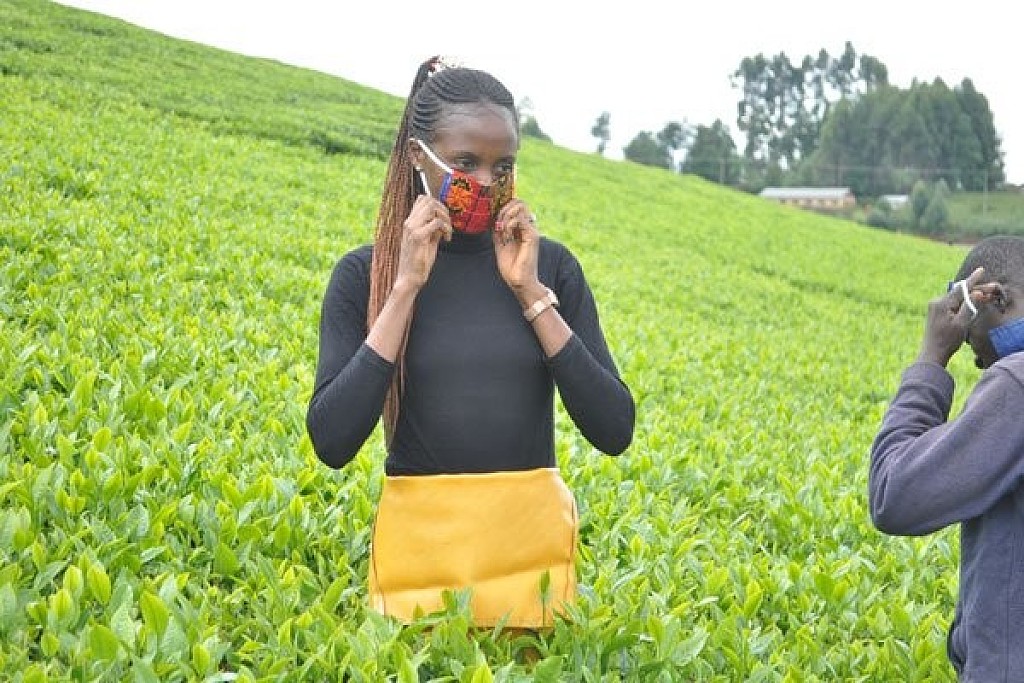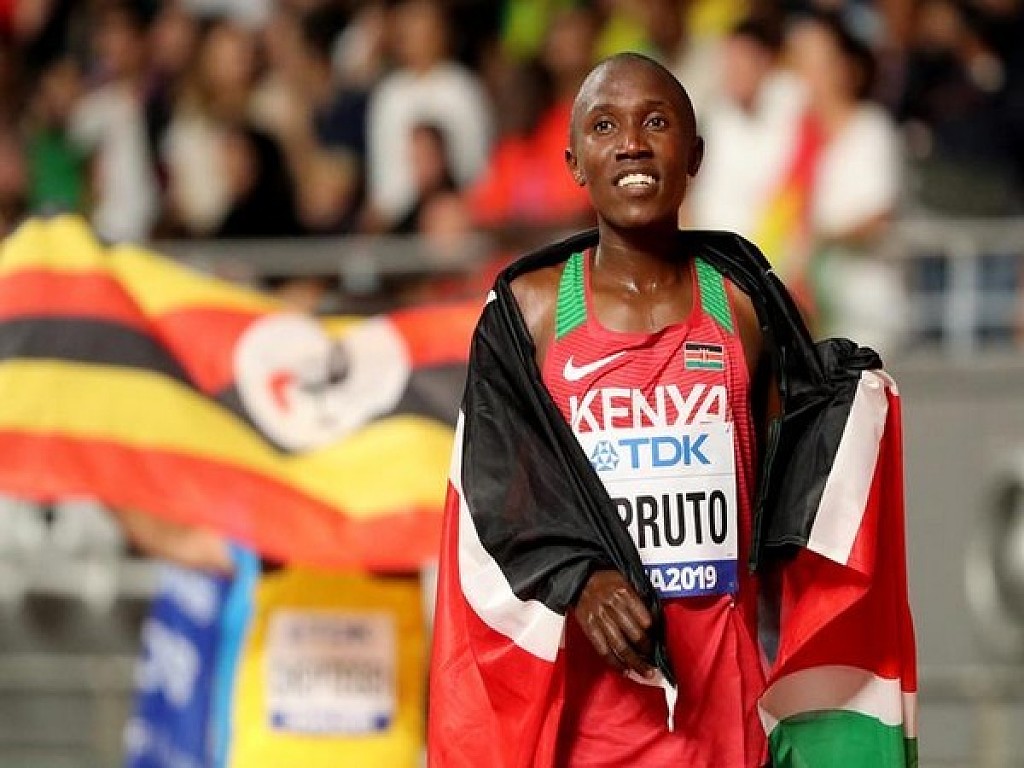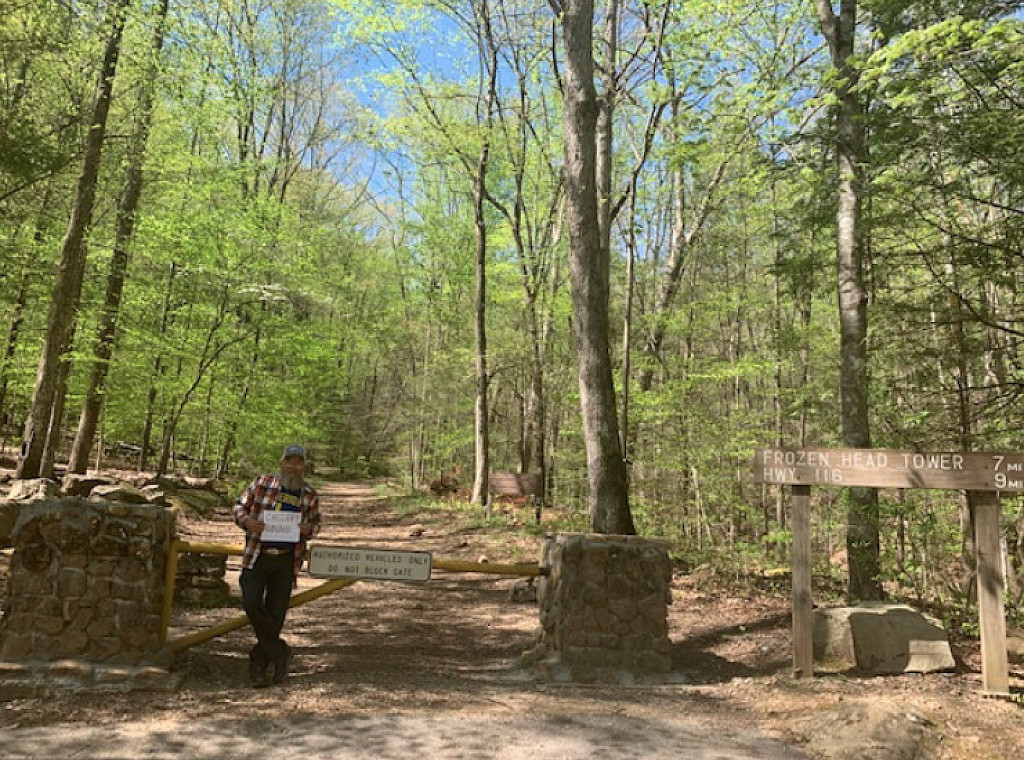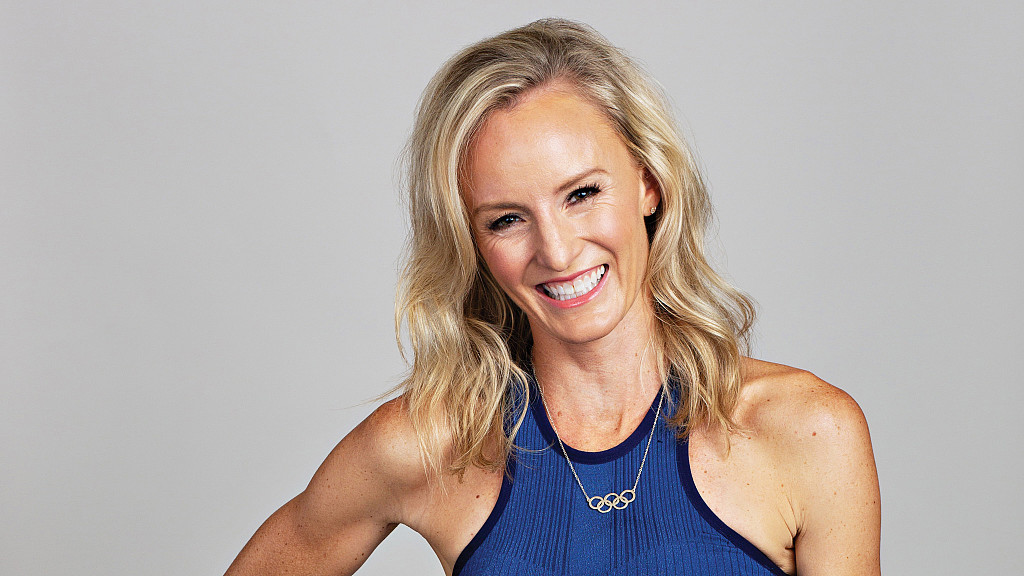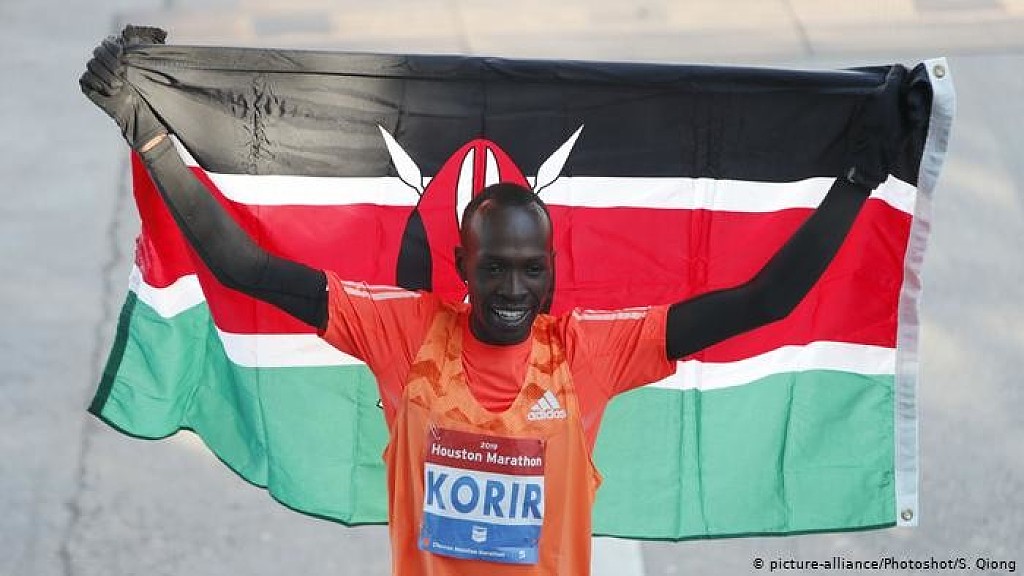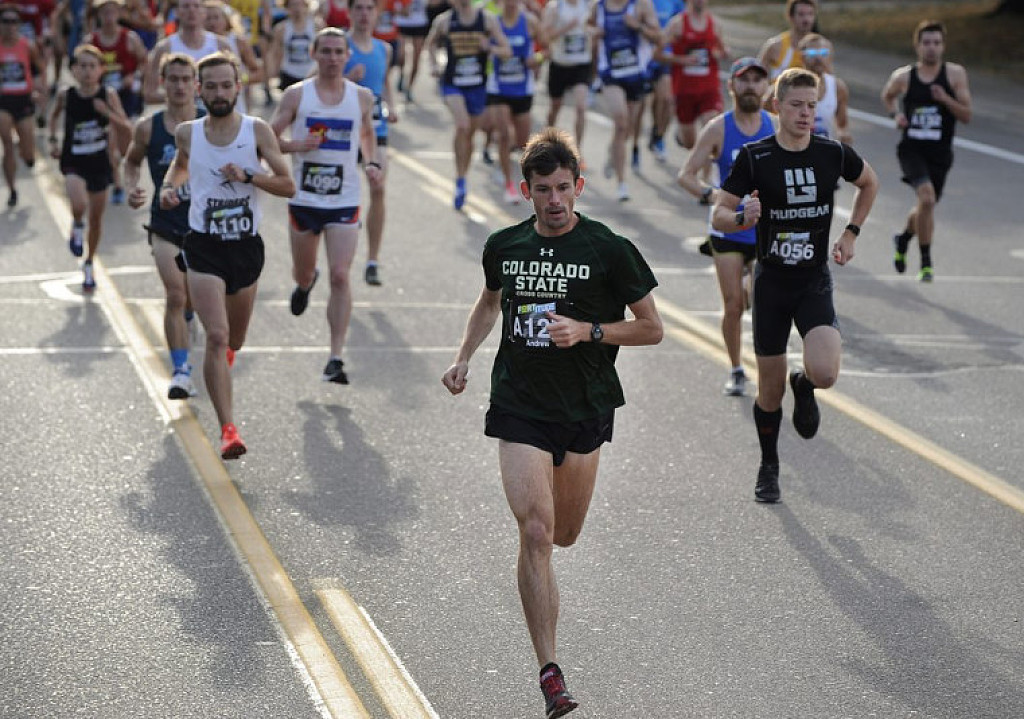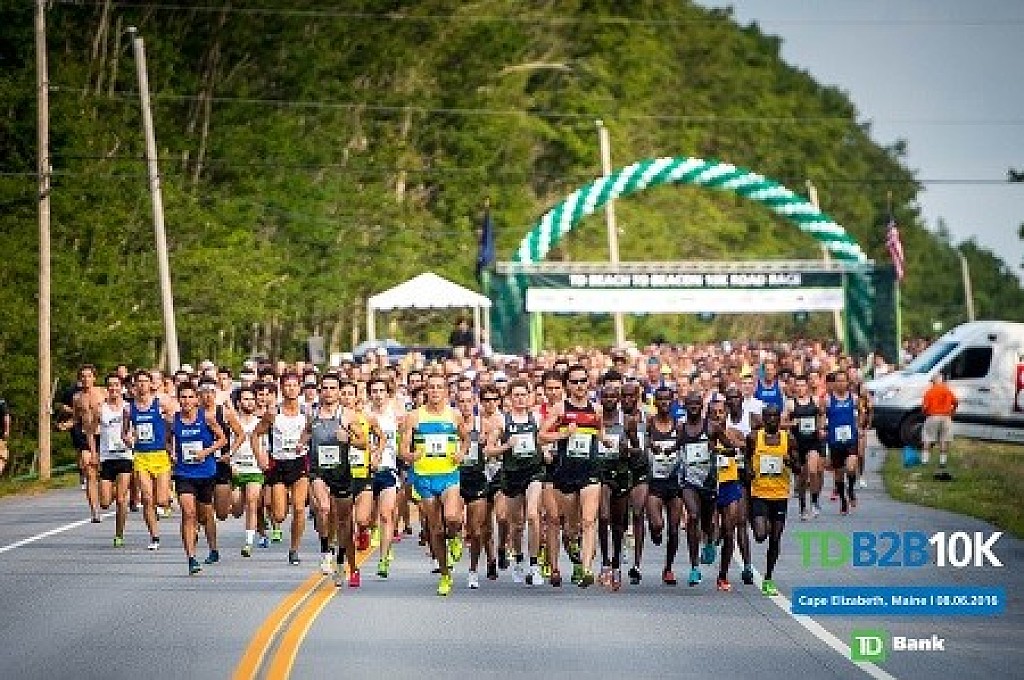Running News Daily
Top Ten Stories of the Week
5/9/2020
These are the top ten stories based on views over the last week.
Some Kenya athletes are keeping themselves busy working on farms during this crisis
Coronavirus pandemic has shook the sports world globally, causing a stoppage of all sports competitions and tournaments.
From March 13 when Kenya reported her first confirmed case of coronavirus, Kenyan sports has suffered, and local athletics has not been spared either.
In March, athletes who have been training in various camps across the country in readiness for the season were forced to go back home and engage on other things following a ban on all sports activities and social gatherings by the government in an effort to contain the spread of coronavirus.

The government also put in place guidelines on social distancing. Many of the athletes are now venturing into farming, which promises good earnings after missing the entire athletics season.
World record holder in 3,000 metres steeplechase Beatrice Chepkoech has been busy helping her parents at home with fetching firewood and picking tea leaves at the family farm.

Chepkoech retreated to her rural home in Besiobei Village in Konoin, Bomet County where she trains alone and also spends the rest of her time helping her parents.
“The entire season is now going to waste and we have been left to just do easy training as one way of keeping fit. But as an athlete, I also need to be in good form just in case the virus is contained and competitions are open,” said Chepkoech.
She is now focusing on next season as she seeks to break the world record in the distance, and to win a gold medal in 2020 Olympic Games which have been postponed to next year.
Japan-based Rodgers Kwemoi is now concentrating on maize farming in Furfural village in Matunda, Uasin Gishu County after failing to travel back to Japan.
The 2016 World Under-20 champion in 10,000m has been working and at the same time training in Japan but he couldn’t go back due to the virus where he is signed up by Asian Corporate team in Japan. He told Nation Sport that he is now concentrating on maize farming as he waits for things to come back to normal.
“I’m now busy spraying pesticides on maize in my farm. As athletes we depend on running and we feel wasted because the whole season has now gone to waste,” said Kwemoi.
He is keen to represent Kenya at the Olympics after coming in fourth place at the Doha World Championships last year.
World Under-20 10,000m champion Rhonex Kipruto is also busy planting trees in Kimamet village in Kamwosor, Elgeyo Marakwet County.
(05/05/20) Views: 486Bernard Rotich
World Under-20 10,000m champion Rhonex Kipruto eager to lower his world record
Conoravirus lockdown has only made Rhonex Kipruto hungrier and he is now thinking of lowering his person best in 10 kilometers that happens to be the world record.
The World Under-20 men’s 10,000m champion believes that with good preparations his record can dip further.
Kipruto started the season in explosive fashion breaking the 10km world record at the Valencia Ibercaja road race. He clocked a blistering 26 minutes 23 second, lowering the previous world record of Joshua Cheptegei’s time of 26:38, by a massive 15 seconds.

In his great form he was all set to assault his own record before the coronavirus pandemic disrupted the athletics calendar.
“I was right on target in my training and was focused on getting a place in the Olympic Games and going for the gold medal.
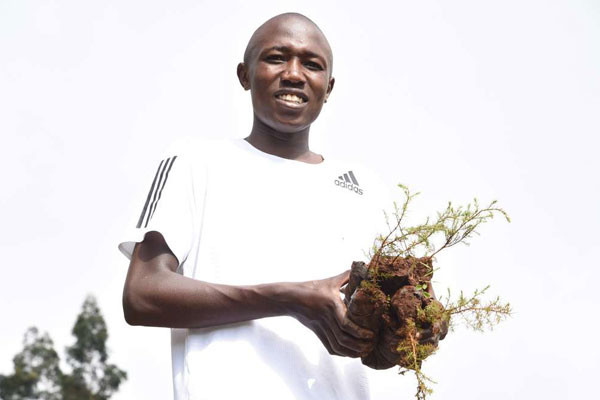
“But that has to wait now up to next year,” said Kipruto who is also the world bronze medalist in 10,000m.
Nation Sport caught up with Kipruto at Kimamet village in Kamwosor, Elgeyo Marakwet County where he was busy planting trees with his younger brother, Africa Under-20 10,000m champion Bravin Kogei.
According to Kipruto, when the camps were closed, they decided to go home and train individually.
The two normally wake up early in the morning for their normal run that covers about 21km before settling down to some easy farm work.
This they said was also part of their efforts to stop soil erosion and landslides that usually affects the community in this rather hilly area.
“Our training programme didn’t change it’s only that we are doing it alone which proves hard because we are used to group training back in Iten.
He has taken missing his much anticipated runs in the Diamond League in his stride and looking ahead to other promises.
“The virus has stopped the entire world but I want to say that we will come out of this situation stronger. Don’t be surprised to see athletes running faster times next season,” hinted Kipruto.
He termed the world record as the perfect gift for his training mates who helped him during the December holidays pushing him to his limits during preparations.
“Before I competed in January, I was training with a group comprised of various high school students who were at the holiday camp and they really pushed me in my training which later earned me a world record when I competed in Valencia,” he said.
Asked about Cheptegei, Kipruto said that he respects the world 10,000m champion but insists he is beatable.
(05/04/20) Views: 274Bernard Rotich
Laz Lake’s virtual ultra has higher participation than UTMB
Laz Lake’s The Great Virtual Road Race Across Tennessee, which began May 1st and runs through August 31, has amassed an astonishing 10,000+ participants. The event, which will see runners travel virtually on foot across the state of Tennessee (roughly 1,000K), has 10,174 registered runners and is still open for entry.
Runners have four months to tackle this behemoth of a race, and if they finish with enough time to spare, they can go for the out-and-back route and complete an additional 1,000K (this would require averaging 16K a day for four months)
(05/03/20) Views: 145Shalane Flanagan Adopts a newborn Baby Boy Jack Dean Edwards
She’s a four-time Olympian for Team USA, and now Shalane Flanagan is a mom.
The former track and field and marathon star announced she and husband Steve Edwards became parents after adopting a newborn son this week.
“By far, the greatest gift we have ever been given. Jack Dean Edwards,” she captioned an Instagram slideshow of the swaddled baby. “On April 28th, Steven and I welcomed Jack with full hearts and open arms into our family through adoption.

“I was not prepared for a love like this."
Jack arrived Thursday at 8:56 a.m., weighing 6 pounds 10 ounces, Flanagan wrote.
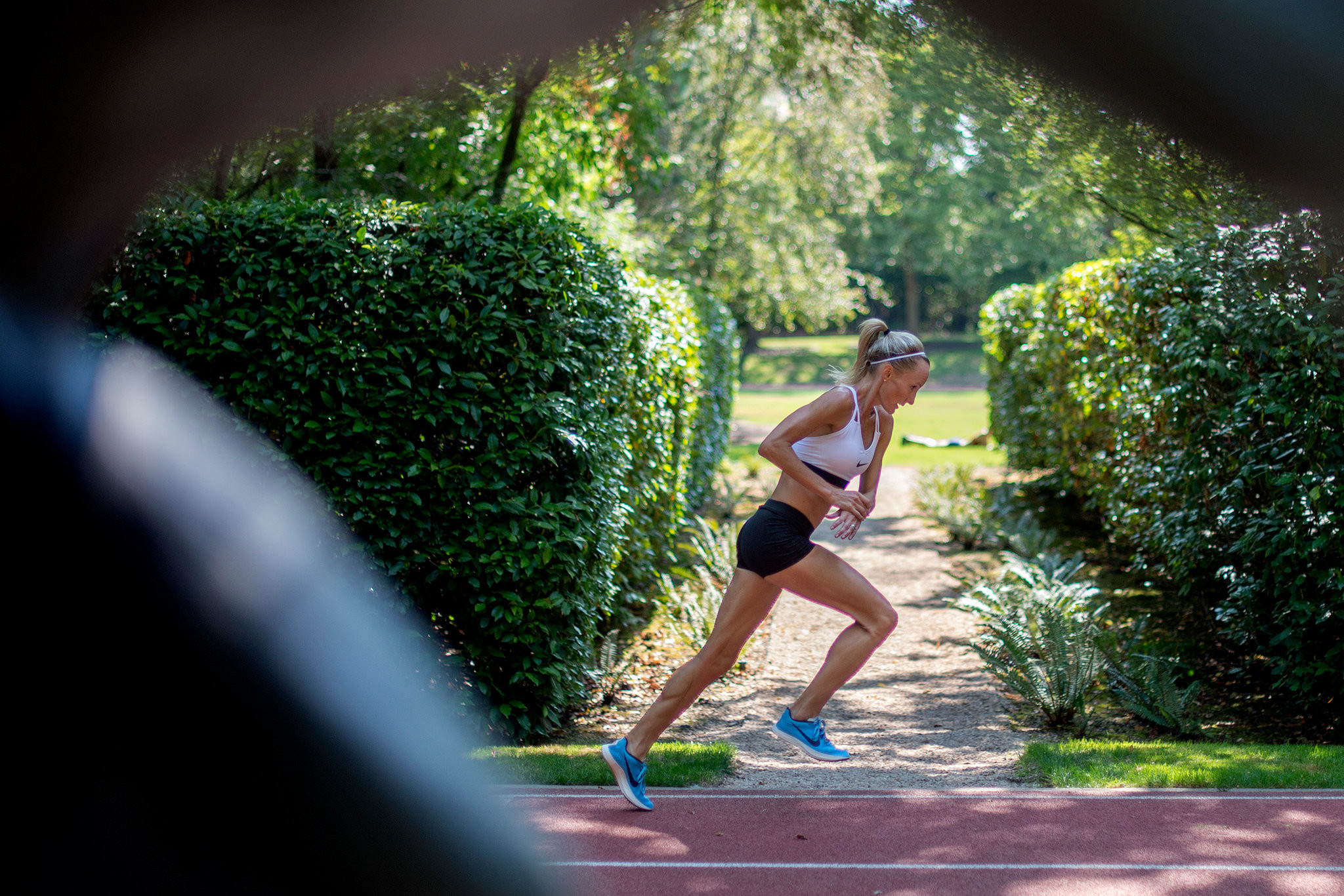
The couple previously fostered teenage sisters, and soon after began looking into adoption. Flanagan opened up about the process in a March 2019 article with Women’s Running, saying they had applied for an infant adoption but were also exploring foster adoption.
“There’s such a need and my heart goes out to these kids,” she said. “I feel like Steve and I are in such a fortunate position to be able to give kids care and a home. …
“We may adopt an infant. We may adopt toddlers. We don’t know, but we’re putting ourselves in a position for whatever kids are in need. It’s scary but exciting. It’s a totally different life, but it’ll be fun.”
Flanagan, a native of Marblehead, Massachusetts, who now lives in Portland, Oregon, made her Olympic debut in 2004 on the track, and four years later won a bronze medal that was later upgraded to silver in the 10,000-meter in Beijing. She switched to marathon after that, finishing 10th in London and sixth in Rio.
Along with Des Linden and Kara Goucher, Flanagan helped usher in a new generation of U.S. women’s marathoners, and in 2017 her win at the New York City Marathon ended a four-decade drought for U.S. women’s runners.
She retired from elite racing in October 2019 to pursue a career as a coach. NBC also hired her as an analyst.
Several fellow Team USA stars were quick to congratulate Flanagan on Instagram, including Goucher and Allyson Felix, both of whom are also mothers.
“Congrats Shalane!” Felix wrote. “So happy for you"
(05/01/20) Views: 81Chros McDougall
Kenyan runners are not earning money, not able to train as hard as usual but are trying to be positive during this COVID-19 crisis
The coronavirus has brought most elite sports to a grinding halt. While athletes who compete in individual sports are at an advantage, marathon runners too are finding it difficult to maintain their competitive edge.
Albert Korir, Henry Kiprop and Felix Kandie are professional marathon runners. Under normal circumstances, each of them would run 180 to 300 kilometers (111 to 186 miles) every week as part of their usual training routines. However, as in most other countries, Kenya's government has implemented restrictions of movement in an effort to curb the spread of COVID-19.
This means Kenyan athletes, like Korir, Kiprop and Kandie, are now forced to train alone, and the restrictions have also forced them to roll back their training regimes – by as much as 200 kilometers less than prior to the pandemic. The sudden reduction in training doesn't come without risks.
"I went from 200 to 50 kilometers a week, so I am worried," Albert Korir says. "When you start active training again you might get injuries."
Korir usually runs two marathons a year. In 2019 he finished first in Houston and second in New York – while setting a personal best in the Canadian capital, Ottawa. Even though the restrictions on movement in Kenya have only been in place for a few weeks, the 26-year-old has already noticed that his fitness is starting to suffer.
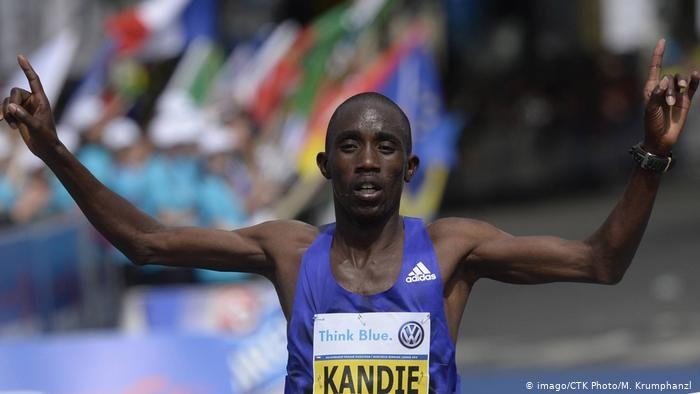
"When you're training you breathe hard. Your body is not fit like before, like when you were training hard," he said. "There's even been some changes like weight gain."
Trimming their distances isn't the only problem; elite runners usually train in camps with up to 50 other competitors, but now many are forced to train alone.
For Felix Kandie the coronavirus couldn't have come at a worse time. He had been looking forward to running in what would have been his third Boston Marathon this year. But on April 20, the day when it was originally scheduled for, Kandie was at home – as the coronavirus had forced this year's Boston Marathon to be postponed.
"Now I would have been in Boston racing a few days ago," he said.
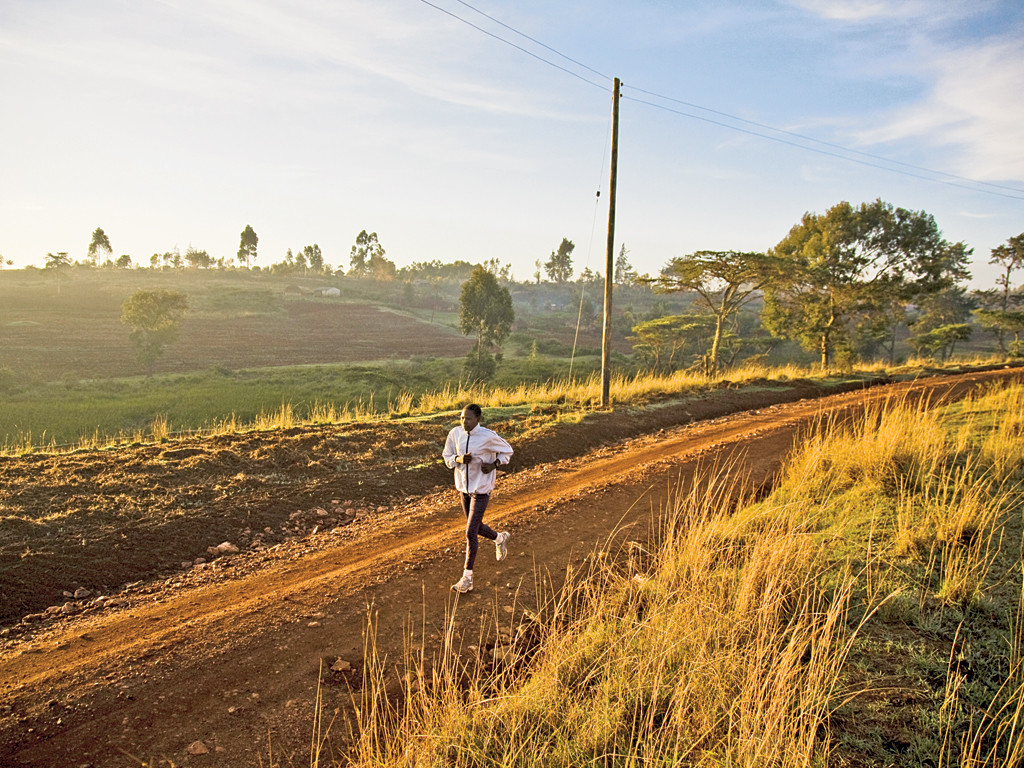
Kandie could get another shot if the Boston Marathon goes ahead in September, as organizers are hoping. But when the coronavirus outbreak started, he had already completed 80 percent of his training program in preparation for the event. Last year the 33-year-old had an incredible campaign, placing fourth in the Boston marathon and fifth in Berlin.
He told us that he would stick to his training program as closely as possible despite the restrictions. But at the same time he noted that individual training just wasn't as effective as training in a group.
"You need people there to push you. You need them to make you more competent," he said. "When you're training alone you may feel like you're running fine, but you're actually not getting something out of running alone. In a group you're able to assist each other in all decisions, the speed walking sessions and the morale sessions."
Henry Kiprop was getting ready for this year's Milano Marathon when the pandemic put paid to those plans. He was runner-up at the 2019 Venice Marathon with a time of 2:10, and he had been aiming to knock five minutes off his previous best. Now he is concerned about what this forced break and the absence of optimal training will do to his future performances.
"A marathon is like a process. You do it this year, you do it next year, and finally you have mastered the art of marathon running," he says. "If you're told to go and run the London Marathon without training, that is quite impossible."
Financial impact
Quite apart from the restrictions on training, many elite runners are also facing severe financial concerns. Korir is sponsored by German sports giant Adidas, but he still depends on races as his main source of income.
"We have to run and compete. If you don't have any races, then you don't have any finances so it will be difficult for us athletes."
Although many runners find themselves in the same boat, Kiprop believes the financial impact will vary.
"It all depends on the individual. All the marathons that I have been running, I have used my money well," he said. "I've invested in some real estate. So it may take me some time before things get bad for me."
While some can cushion the financial burden better than others, it is a precarious situation for all.
Like Kiprop, Kandie also invested his earnings when he started racing. He knew he can't run forever and needed to secure his financial future. But despite having a what he believes to be a sound financial plan, he would rather not tap into his savings.
"If things continue into next season. If things stay the same there will be big challenges because you have to use the investments that you have," he said.
'No competitions = no prize money'
So is anybody listening? World Athletics and the International Athletics Foundation recently set up a fund to help track-and-field athletes during the coronavirus crisis. World Athletics President Sebastian Coe is well aware of the athletes' financial problems.
"Clearly, if there are no competitions, there's no prize money. So the first objective is to try and get competition back into their world again," he says.
What that may look like and when it'll come about depends on how quickly the coronavirus is contained.
For professional marathon runners this means continuing to make the best out of a difficult situation. But they know bouncing back to pre-coronavirus levels could take a while. They'll simply have to rely on their endurance and resistance to get them through what is looking more and more like a marathon, not just for professional runners, but people of all walks of life all over the globe.
(05/02/20) Views: 79Alima Hotakie
With his race event cancelled, 72-year-old Eric Spector inspires other seniors to remain active
The key is to commit to staying fit, whether during a pandemic or not, says Eric Spector.
If these were normal times, Eric Spector would be in the final phase of training for the race of his dreams — the annual Western States Endurance Run, a 100-mile trail run from Squaw Valley to Auburn. It's an event he calls the Superbowl of ultramarathons.
But with the June event canceled, along with most other activities, due to the coronavirus crisis, the 72-year-old fitness enthusiast has been forced to adapt his fitness routine.
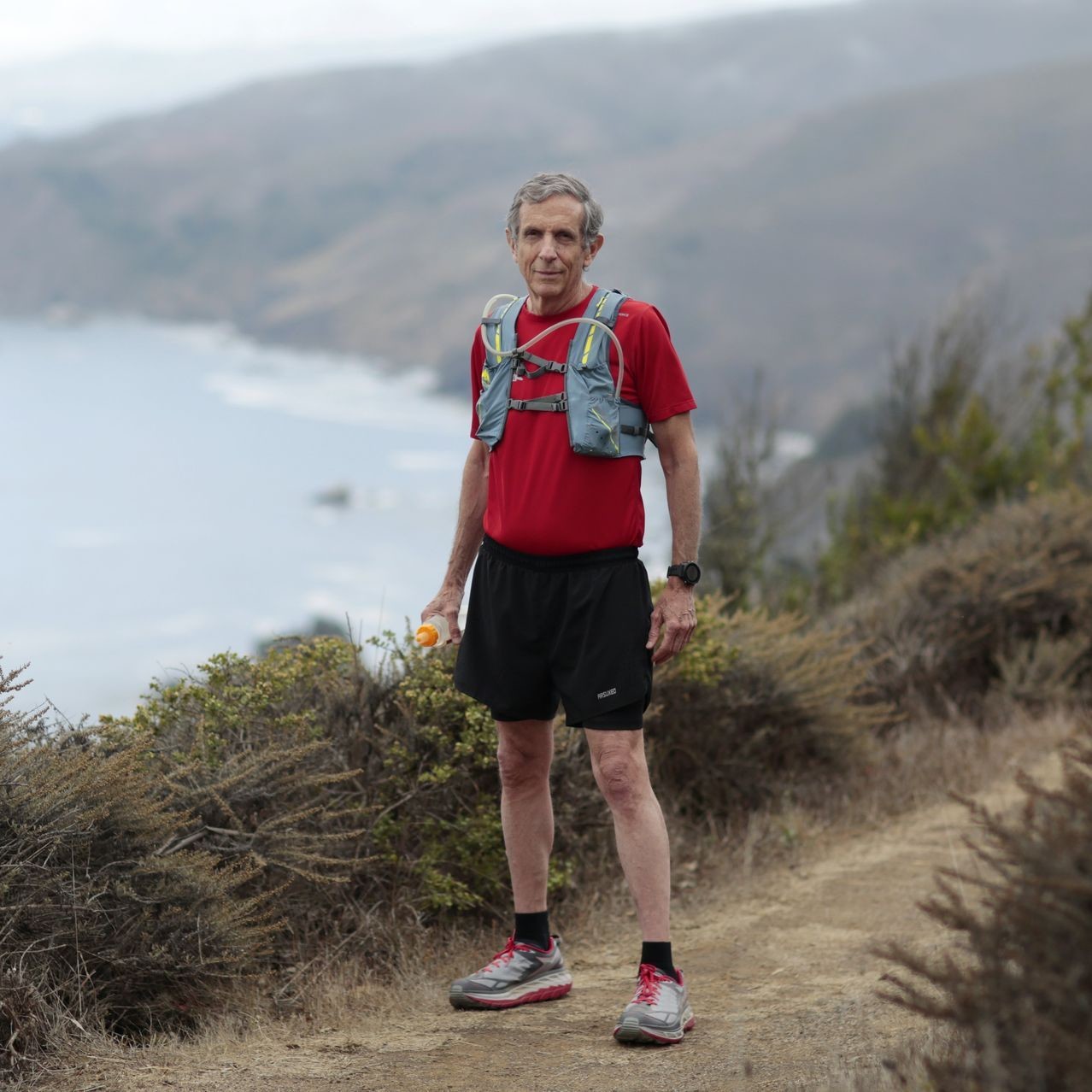
Rather than rigorously training in the hills above Palo Alto, Spector has turned to power walking. And rather than swimming and exercising at the Oshman Family Jewish Community Center, he has set up a gym in his garage where he can lift weights, ride a stationary bicycle and generally keep moving.
"The key is working up a sweat and getting the benefit of a cardiovascular workout," said the Palo Alto resident, who has participated in more than 20 marathons in the United States and abroad and was the oldest person to complete the 2018 Rio del Lago 100-Mile Endurance Run in the Sierra Nevada foothills.
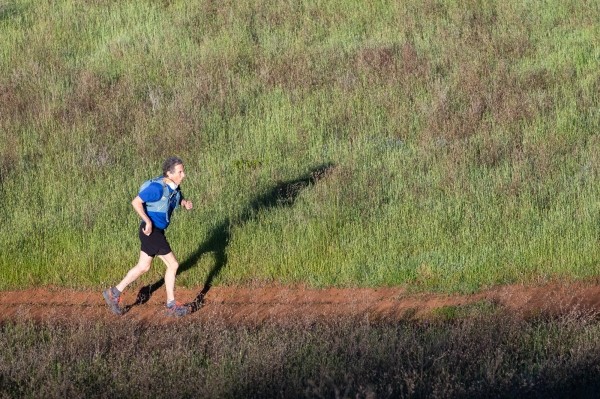
Though a committed runner, Spector, who turns 73 on May 5, is no exercise snob. In fact, he's a promoter of exercise for anybody and everybody through his Twitter page, [ @fitatallages.
"It doesn't really matter what activity somebody chooses — the benefits of being fit are extraordinarily clear," he said."It prevents so many diseases and, if you get sick, your recovery time is usually much shorter because of your fitness.
"Whether you speed walk, bicycle, play racquetball, hike — the most important thing is that you do it regularly and that you sweat. With those two ingredients, it provides a longer, healthier, more vigorous life."
On his Twitter feed, Spector often shares links to inspirational stories of older athletes as well as small exercise tips like:"Well, you don't want to run? Then dance."
During the stay-at-home order, he has been sharing the many ways athletes, from Olympians to coaches, have adapted their fitness routines. One marathoner who qualified for this year's Olympics in Tokyo, shared this philosophy with the New York Times: The only thing athletes can control at this point, since competitions and events are canceled, is their training routines. Another story that Spector shared from Sports Illustrated features a running coach who provided some creative inspiration to those looking to compete or exercise: He organized a virtual ultramarathon where participants mapped out their own running loop in their backyards, neighborhoods or treadmills and livestreamed their runs on Zoom.
Spector said the key is to commit to staying fit, whether during a pandemic or not. He recommends picking an exercise and following through with a routine. This can be anything from walking around the block once a week to walking around the backyard everyday. Tracking when, where and for how long you do a particular activity will help you maintain a routine and stay motivated.
Exercise wasn't always a priority for Spector.
As a young man he was overweight and working long hours at a New York City startup.
"I wasn't at all plugged in to athletics of any kind — I'd really done nothing more than work and eat and put on some weight," he said.
But he became intrigued when some of his business school classmates flew in from California to run the 1978 New York City Marathon.
"I thought, 'If these guys can do it, I should be able to do it,' so I bought some sneakers, went out for a run to the west side of the Hudson River and barely made it," he said.
Spector kept at it, and a little more than a year later, he entered the 1979 New York City Marathon.
"It was my first running event ever but I did quite well and loved it," he said."I really loved the fitness, the clarity of mind, the stream of consciousness as you're running."
He grew to love the "runner's high," which he describes as"a kind of a euphoria, where you're not even conscious of the effort. It's just the rhythm and the joy of physical activity.
"For me, that kind of activity has been a mainstay of mental health and sanity, with the benefit of staying fit," he said.
(05/01/20) Views: 75Chris Kenrick
Running industry walloped by COVID-19, and it may take years to recover
Races in the busiest season of the year have been canceled or postponed while retail sales plummet.
With more than a third of this year’s competitive road racing schedule canceled or postponed by the coronavirus, and running stores enduring massive drops in sales because of restrictions on retail businesses, America’s running industry is bracing for months or years of fallout.

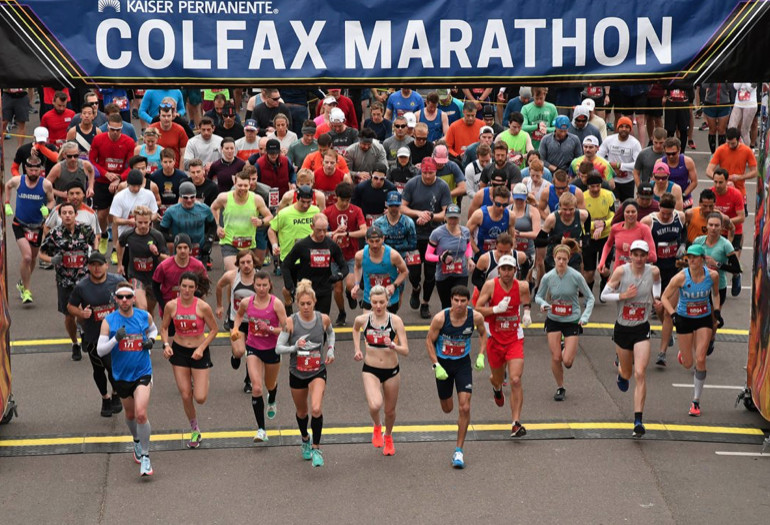
The effects of COVID-19 on the sport may not be all bad, many in the running community believe, citing a running boom that followed the Great Recession in 2008. The only thing a runner really needs to run is a pair of running shoes.
“People turn to this sport in particular in times of economic downturns and crises,” said Rich Harshbarger, chief executive of Running USA, an industry trade group. “We saw this in the late 2000s. People gave up their country club memberships and returned to simpler sports like running. You saw a downturn in golf, you saw a downturn in skiing — things that are more expensive. Runners turned to the sport, or returned to the sport, to relieve stress. And, to get and remain healthy.”
But the number of road race registrations — more than 17.6 million in 2019, according to Running USA — is bound to decline significantly this year and maybe beyond. Meanwhile, many running stores are prohibited from having customers in their stores, as is the case with other “non-essential” retail stores, and that has hit them hard.
Sales have declined 80% at Runner’s Roost in Lakewood and 70% at In Motion Running in Boulder, according to owners of those stores. The Lakewood store cannot have customers inside but is finding other ways to fill shoe orders, and owner Sonya Estes senses an influx of newcomers to the sport because of COVID-19 — just as Running USA predicted.
“We can look at all the bad, or we can look at the good, and the good in this is that running has been touted as one of those things that is great for your mental and physical health,” Estes said. “To have the governor stand up there and say, ‘Get out and go for a hike,’ or, ‘Go for a run, just don’t do it in a large group,’ I think long-term it’s going to be amazing for the business. When you see gyms and rec centers close down, I’ve never seen so many people up on Green Mountain or at Bear Creek. People that wanted to work out are now embracing running. If they find that they really like this, I think long-term, for running, it’s actually a good thing.”
In Motion Running has remained open, in part because owner Mark Plaatjes practices physical therapy at In Motion Rehabilitation, a clinic attached to the rear of the store, and that stayed open. Only two retail customers are allowed in the store at a time, though, and store personnel disinfects after customers leave.
Like Estes, Plaatjes has seen newcomers. “It’s definitely nice to see new people coming in that we haven’t seen before,” Plaatjes said. “Once our regular customers come back, I’m sure that will translate into an increase in sales and participation in running.”
Both stores are offering non-contact curbside service and home deliveries. They and other running stores are offering virtual gait analysis to assist customers in choosing the right shoes, a process that normally is conducted on treadmills inside the stores. Customers submit videos of them running so trained staff can analyze them and recommend shoes constructed for their anatomical particulars.
The carnage in road racing could be significant, though. Running as a solitary fitness or mental healthy pursuit is one thing, but for many runners, the social aspect of the sport comes out in racing. Races are community celebrations of the running lifestyle. That part of the sport has been dealt a devastating blow, and officials fear it could take years to recover.
Spring is the busiest season of the year for racing, with 35% of America’s races scheduled in March, April and May. Most of those have been canceled or postponed until fall. Some of those events, and the companies that support them by providing timing and other event services, may never recover. The vast majority of the road race industry is comprised of small businesses with eight employees or less, according to Running USA’s Harshbarger.
“It absolutely can be a fatal blow, and unfortunately it will be for a lot of the industry,” Harshbarger said. “We were already seeing some event management companies have to close their doors. Their sole business is to go around their region or their city and help produce events. When those events cease to have revenue, their livelihood evaporates.”
The Bolder Boulder was able to reach quick agreement with the City of Boulder and the University of Colorado (where the race finishes) to postpone from Memorial Day to Labor Day. But the Cherry Creek Sneak, which was scheduled for April 26, is still waiting for the City of Denver to approve a new date it sought to reserve in September. So is the Colfax Marathon, which includes a half marathon, a 10-miler and marathon relay that were scheduled for May 17.
Colfax race director Andrea Dowdy said 14-15,000 medals for her races were scheduled to arrive last week, and there’s no guarantee those races will be held this year.
“We feel very comfortable that operationally we’re in a sound place, so that when the city says to us, ‘You can have an event this fall,’ or ‘We need all events to wait until the spring,’ we can work either way,” Dowdy said.
Harshbarger fears that races will “cannibalize” each other if they are rescheduled in the fall, which is already the second-busiest season with 31% of the nation’s races scheduled in September through November. The Bolder Boulder has already folded its Fortitude 10K, normally scheduled for Labor Day in Fort Collins, into the Boulder race. In effect, both races will be run concurrently in Boulder.
If the Cherry Creek Sneak and the Colfax event are added, September would become an extremely crowded race calendar in Denver. And that would come on top of non-running events already scheduled in the city or looking to reschedule then. Dowdy and Cherry Creek Sneak race director Pat Downing can only wait on word from the city’s Office of Special Events.
“They need to form a new process on how they’re going to allocate a very limited number of spaces into a space now that is overcrowded,” Downing said.
Another question that arises: What will races look like when they do resume?
“Who knows, resurgence or not, what social distancing guidelines are going to be?” Harshbarger said. “Let alone the emotional fog of, ‘Do I really want to get in a corral with 50 people? Do I want to get in a race with 10,000 people?’ We don’t know. When we come through this — and I don’t know when that is, a year? Maybe two years? — I do think the sport will be strong. I do think there will be demand to do this. I think there will be new guidelines and corral set-ups. But history shows us that runners are resilient.”
(05/03/20) Views: 66More than 13,000 runners are getting prepared for virtual Pittsburgh Marathon
Runners from across the United States and the world are gearing up to run their committed distances from wherever they are as the DICK’s Sporting Goods Pittsburgh Marathon goes virtual in 2020.
13,000 runners from 43 states and 5 countries will either run outside or on treadmills on what should’ve been the weekend of the 2020 race.
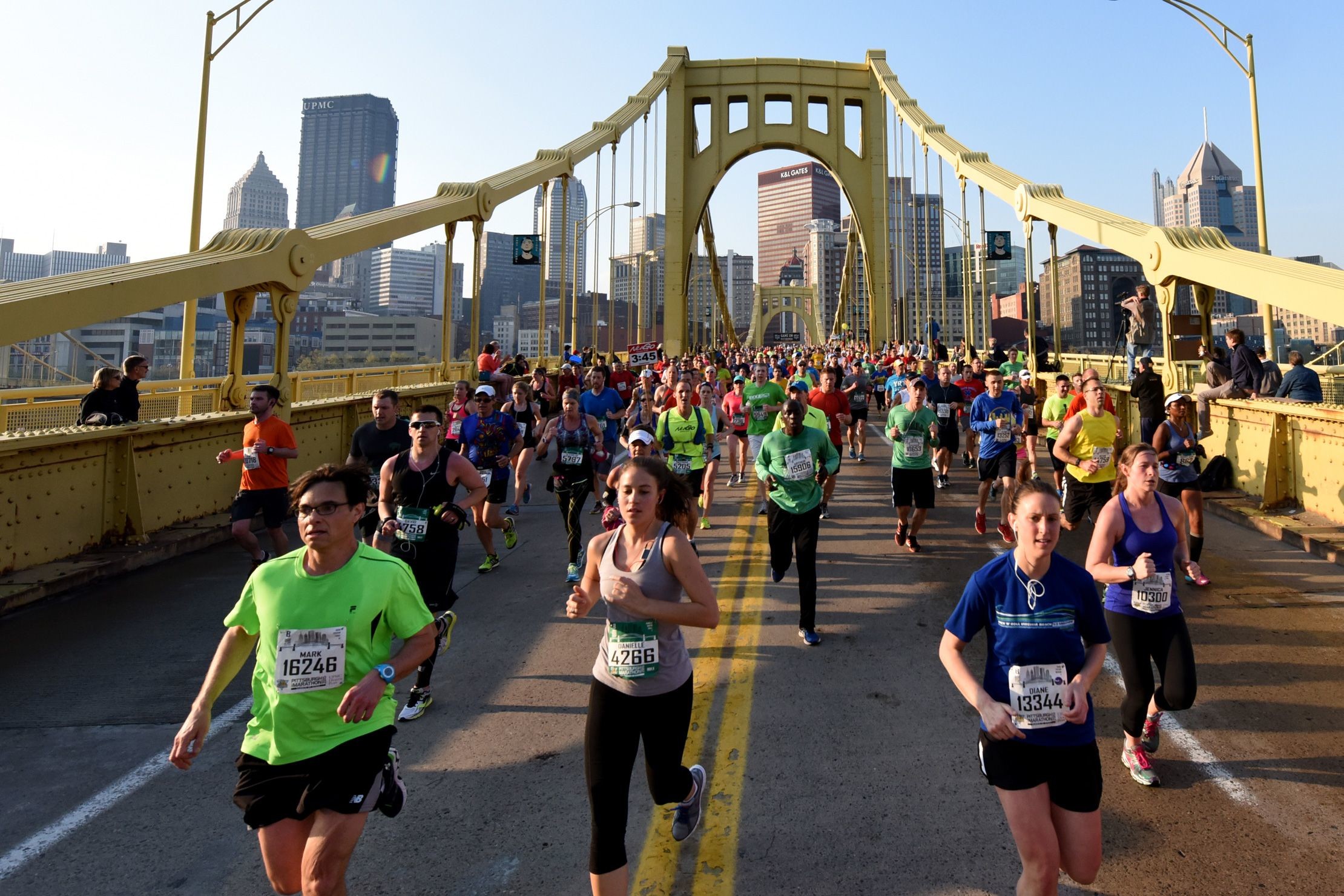
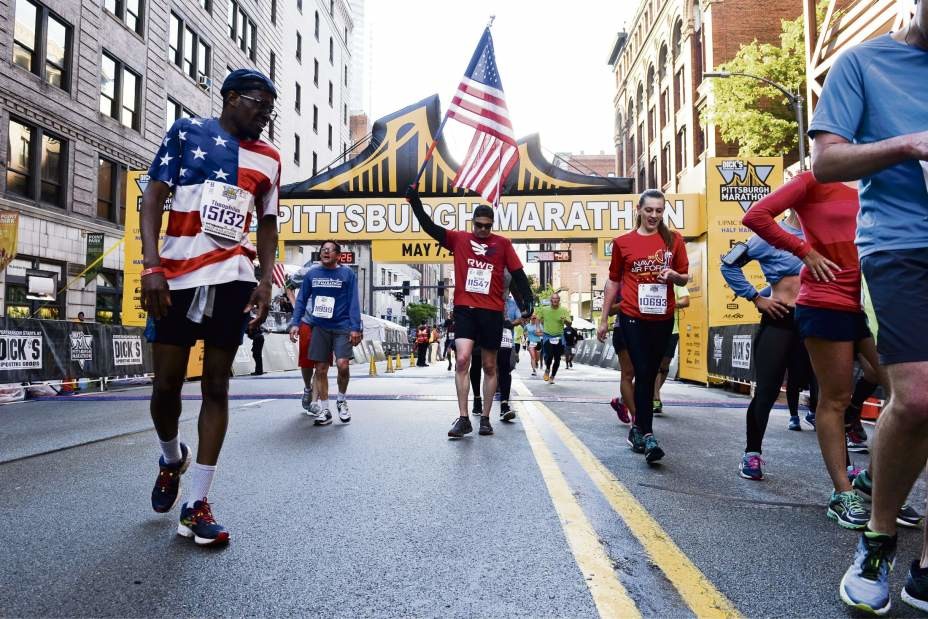
Thirty percent of runners this weekend will be completing their first marathon and 23% of runners will be completing their first half-marathon.
All ages will be running this weekend or have already completed their virtual marathon, including 81-year-old Henry Wood, a Pittsburgh native. Wood finished his 28th Pittsburgh Marathon and 51st marathon overall on April 19.
Raffi Wilbur is a 5-year-old double-amputee who will be completing the Chick-Fil-A Kids Marathon alongside his father.
More than 1,100 runners have already raised over $350,000 for local and national nonprofits.
(05/01/20) Views: 65Kenya's Beatrice Chepkoech 3000m Steeplechase world record holder wants to lower that record once things get back to normal
The coronavirus pandemic may have jolted Beatrice Chepkoech's lofty plans this season, but like a seasoned barrier racer she has quickly regained her footing and her sights for the big prize.
The 3,000m women’s steeplechase world record holder still maintains her goal of lowering her record when competition resumes.
Chepkoech was in fine fettle at the beginning of the season as she looked ahead to the Tokyo Olympic Games.

Her win in the World Indoor Tour in Dusseldorf where she broke the 1,500m national record was clearly a sign of things to come before Covid-19 put paid to any further ambitions, at least for now.
Catching up with her at her home in Besiobei village in Konoin, Bomet County, Chepkoech seemed to have come to terms with the virus’s disruption easily talking about her botched plans this season.

She said that this year she had targeted bringing home the Olympic Games women’s steeplechase gold medal, the only diadem missing from her cabinet.
“I started the season well by winning in 1,500m and setting the national record during the World Indoors Tour. I was using the races to prepare for the season and my focus was to start the Diamond League series in super form,” said the champion.
Chepkoech had signed up for the Doha Diamond League 3,000m race before it was cancelled due to the virus.
“The World Tour was postponed to next year with Diamond League races following suit. These thoroughly disrupted our plans. But what to do. We just adjust and plan ahead,” she said.
She had no problems engaging this writer on her plans, saying her meticulous planing for the season had more or less gone to waste after lockdown restrictions were imposed almost the entire globe following the outbreak of Covid-19.
Chepkoech said she had been doing easy training over the past few weeks but planned to step up her regiment from next week as she targets the new season.
“The current situation is not permanent. Things will normalise and I intend to come back even stronger.”
(05/04/20) Views: 58Bernard Rotich
Beach to Beacon 10K Road Race has been Cancelled for 2020 with Refunds for all Participants
Due to ongoing concerns regarding the impact of COVID-19, and recent guidelines announced by the Maine Governor’s office, the board of directors of the TD Beach to Beacon 10K road race voted on Tuesday to cancel the 2020 race scheduled for August 1.
“COVID-19 and its impact on our state, the nation, and the world is unprecedented and after significant review and in partnership with our medical partners we have made this very difficult decision. We know this will be disappointing for those of us who look forward to the race each year but the health and safety of our runners, volunteers, spectators, staff, and community remains paramount,” said David Backer, President of the TD Beach to Beacon 10K.
The $55 race entry fees will be automatically refunded to all registered runners over the coming weeks. Additionally, given demand for registration, race organizers have announced that all 2020 registrants will have an opportunity for early entry into the 2021 race. Race organizers will release details about the early entry process when finalized.
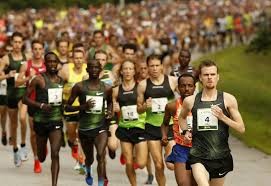
The 2020 race beneficiary, JMG, will remain the beneficiary for the 23rd running which will be held, as is tradition, on the first Saturday in August of 2021.
“This has been a heartbreaking decision for all of us but is the right and only decision to be made at this time of uncertainty and unknowns”, said Joan Benoit Samuelson, Race Founder and Olympic gold medalist. “The TD Beach to Beacon 10K will return next year, consistent with the enduring nature of our sport, team and community.”
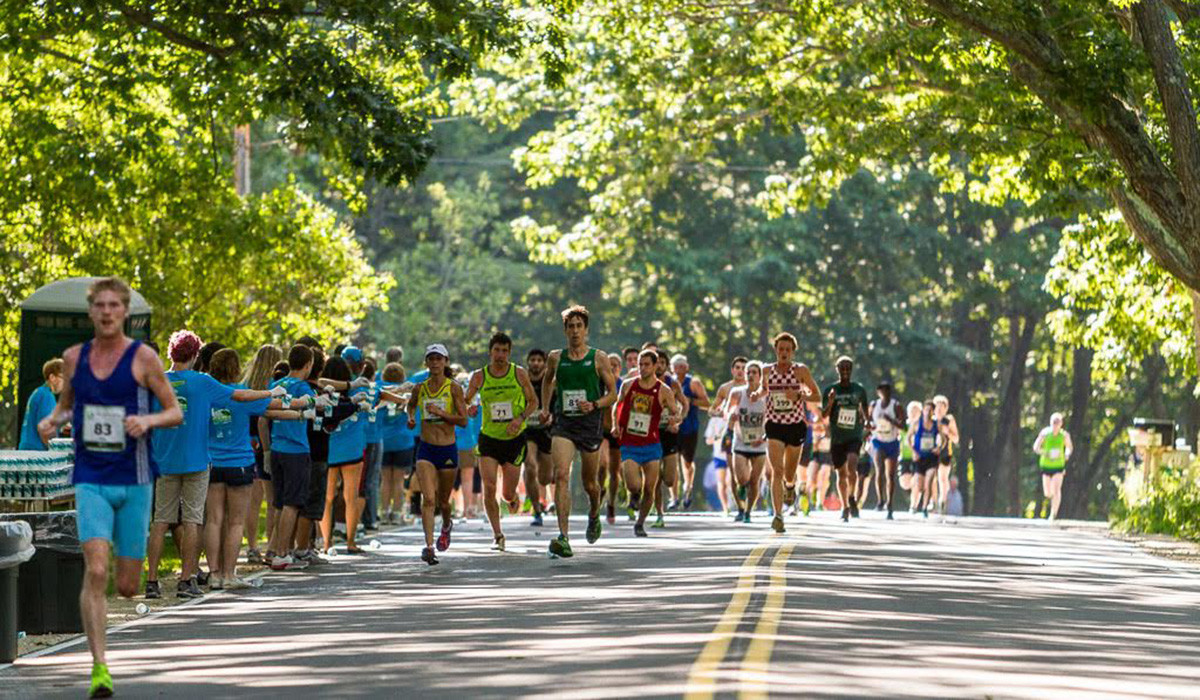
Samuelson continued, “As we run apart, we gain new strengths and appreciation for those who keep pace with us in our daily lives, especially those who have been on the frontlines of this pandemic with selfless endurance and courage.”
Race organizers will share updates in the coming weeks on plans for how the TD Beach to Beacon 10K community can stay connected during this time.
(05/01/20) Views: 53

